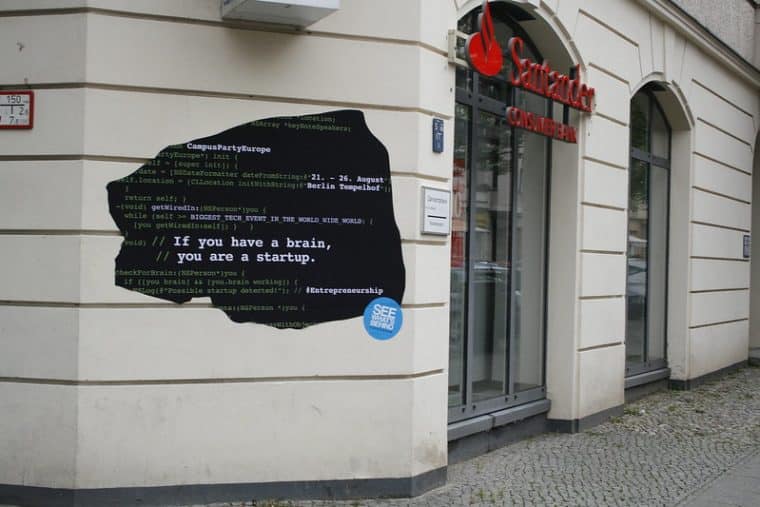
Venture capital funding in Europe showed mixed results in the first quarter of 2023, according to Pitchbook’s European VC Valuations Report, with early-stage valuations falling but late-stage rounds holding up.
Pitchbook’s report found that the median valuation for early-stage deals dropped 15.4% from the previous quarter to €5.5 million ($5.96 million). This continues a trend seen last year of shrinking capital availability for early-stage startups due to a more challenging macro environment.
In contrast, late-stage valuations grew 26.4% to €13.4 million, boosted by some large deals including Enpal’s €215 million round. However, Pitchbook expects late-stage valuations to stabilize in the near future.
Deal sizes in the growth segment, which tend to be larger given companies’ maturity, rose about 20% in Q1 compared to the year before to €9.9 million. However, Pitchbook expects these larger deals to decline later in the year as the downturn intensifies.
Also read: 10 Best Crypto VC Firms & Web3 Funds 2023
The share of down rounds, where startups receive funding at a lower valuation than previous rounds, increased in Q1, indicating a difficult market. However, the true percentage of down rounds could be higher as not all valuations are disclosed, according to Pitchbook’s report.
Exit valuations showed mixed results. The median public listing valuation recovered from last year, but the median acquisition valuation remained below 2022’s total though it increased quarter-over-quarter. Acquisitions have dominated as an exit strategy due to volatile public markets.
Higher Inflation and Interest Rates Weigh on Startup Valuations in Europe
The mixed VC funding trends in Europe reflect broader economic challenges facing the region in Q1 2023. Economic growth has slowed as inflation rises and interest rates increase. Tighter funding conditions and scrutiny of valuations have made it more difficult for startups to raise capital.
Nontraditional investor participation, which had fueled the rapid growth of the European VC ecosystem, has declined significantly. Deal value with nontraditional investors fell 65.3% year-over-year in Q1 2023 as these investors prioritized more liquid assets amid economic uncertainty.
Valuations that had grown rapidly in recent years have largely plateaued as focus shifts to profitability over growth at all costs. Unicorns with high burn rates are under pressure from recent costly investments combined with the cooling market environment.
Early-stage startups have been hit the hardest by these macroeconomic headwinds. Shrinking capital availability, lower growth prospects, and workforce reductions have led to the drop in early-stage valuations seen in Q1 2023.
Also read: US Startup Seed and Angel Funding Tumbling in 2023
However, some late-stage funding rounds involving more mature companies with healthier fundamentals were still able to achieve higher valuations. Outlier deals at this stage helped boost the median late-stage valuation in Q1.
Overall, VC funding trends show the European VC ecosystem is maturing and adapting to a less exuberant economic environment. Down rounds and lower valuations indicate a return to a more sustainable funding climate, though startups will still face challenges from pandemic fallout and rising rates in the near term.
The VC exit market also shows resilience, with acquisition activity outperforming sluggish public listings. Further downward pressure on valuations for European startups is expected over the next few quarters.
Unicorns are Having a Tough Time to Live Up to Expectations
Unicorns in Europe faced pressure on valuations and dealmaking activity in Q1 2023 as macroeconomic headwinds intensified. The aggregate valuation of European unicorns leveled off at €471.2 billion in Q1, indicating flatter valuations. Pitchbook’s analysts expect further downward pressure as funding conditions tighten and growth prospects dim.
Unicorns with high cash burn rates are especially vulnerable given their large and costly investments, and scale of operations. They may struggle to sustain their lofty valuations in the current environment. An example of this can be made out of PayFit, which had to cut 20% of its workforce just 14 months after raising funds at a €1.8 billion valuation.
Deal value and count among European unicorns fell sharply in Q1 2023, by 87.5% and 65.5% respectively. With less dealmaking, unicorns have less cash to fuel growth, making steep valuation increases unlikely in the near term.
Reports of valuation stress at unicorns like Checkout.com, Klarna, and Revolut indicate that problems may spread deeper into the VC ecosystem as macro conditions worsen. Meanwhile, consumer and business spending stalls due to high inflation, which makes it difficult for unicorns to achieve the growth rates that justified their valuations.
While VC is illiquid and problems can be managed privately, unicorn layoffs, spending cuts, and internal valuation discounts have increased. This suggests unicorns are taking measures to adapt to the new market environment focused on capital efficiency rather than growth at all costs.
Other Related Articles: